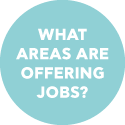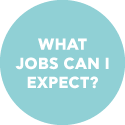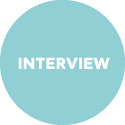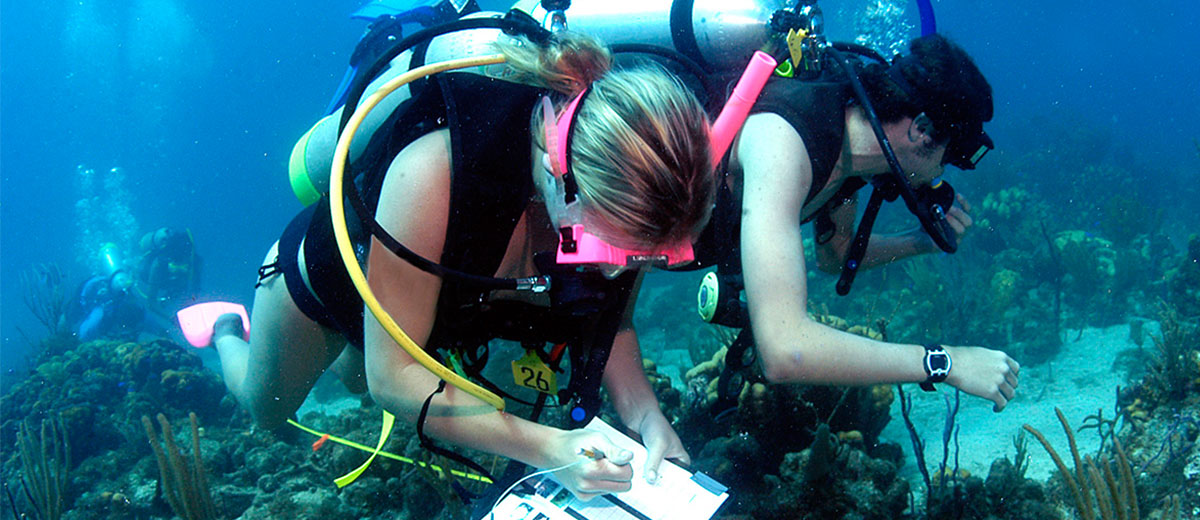WHAT'S IT ALL ABOUT
Aquaculture, also known as aquafarming, is the farming of fish, crustaceans, molluscs, aquatic plants, algae, and other organisms. Aquaculture involves cultivating freshwater and saltwater populations under controlled conditions, and can be contrasted with commercial fishing, which is the harvesting of wild fish.
This activity can take place in both coastal and inland areas involving interventions in the rearing process to enhance production. It is probably the fastest growing food-producing sector and now accounts for 50% of the world’s fish that is used for food. Hence the need is big to develop sustainable options and ways of growth to meet increasing demand for its products. This is clearly reflected in the aquaculture policies of many governments across Europe. In Europe, aquaculture accounts for about 20% of fish production and directly employs some 85,000 people. EU aquaculture production is mainly concentrated in 5 countries: Spain, the UK, France, Italy and Greece with 75% by value in the EU total.
What is needed to be done to ensure a sustainable future for aquaculture?
“To replace the wait-and-see attitude with a more holistic production model, considering animal welfare, sustainability and socio-economic aspects. This is the only way for the industry to play a long-lasting prominent and exemplary role in the upcoming food transition”, mentioned Michael Laterveer, owner of Blue Linked – one of the few marine hatcheries in the Netherlands.
More information:




There are 1,000’s of opportunities in this sector, here are a few examples:
- Fish Farming
- Breeding Research Centres
- Coast Guard Services
- Operations Mechanics
- Communications
- Problem solving
- Health and safety
- Maintaining machinery
- Managing resources
The great potential the industry has and the broad scope of activities means that is holds a host of possibilities as a wide range of knowledge and working activities have to be applied in the aquaculture industry, making it attractive as a place to find meaningful work with possibilities for building capacities and careers from manual labour work via working experience, training and education to advanced specialized functions in a wide variety of fields, in for example biology, economy, technology, science, administration and commerce in or related to the various sectors of the aquaculture industries.
Future of the Sector
A generally accepted view of the aquaculture sector for the future is one of a considerable or even great growth potential. The need for more food, the magnitude of unused potential and the possibilities for sustainable and economic development all point in this direction. The industry is currently in a phase of rapid development, not least technologically and marketwise. Hence the need is big to develop sustainable options and ways of growth to meet increasing demand for its products. This is clearly reflected in the aquaculture policies of many governments across Europe, especially in countries where there is already experience in the field and ongoing growth of aquaculture, which is in all cases encouraged by authorities.
One clear example is Norway where subsequent governments, irrespective of position in the political spectrum, have issued policies aimed at increasing the current national aquaculture production from approximately 1,2 million metric tons/year to 5 million tons/year in 2050. Policies along this line are also valid for the UK, Faroe Islands, Iceland and several other countries in Europe. Sustainable innovative development is also incentivised by government policies encouraging innovation and start-ups in various fields of the aquaculture industry, production as well as in related industries servicing the aquaculture industry.
Read the Economic Report of the EU Aquaculture sector (STECF-18-19).
Meet professionals working in aquaculture in the menu Interview.

- Fish farm technician
- Farm manager
- Saltwater production manager
- Hatchery technician
- Hatchery manager
- Environmental and regulatory affairs manager
- Fish health technician
- Aquaculture engineer
The commercial aquaculture industry holds a wide variation of forms and activities in a variety of regions inland and around the coasts of many countries of Europe, as well as around the whole world. Its broad range varies widely, from growing of algae (seaweeds), via collection and growing of shellfish as mussels and oysters, fish as for example tunas and the maintenance, control and production of the whole life-cycle of fish species as bass, breams, salmon, sturgeons, trout and char; from the management and development of parental fish (often named “brood-stock” fish) for egg production, hatching of the eggs to production and growing of juveniles and adult fish to slaughter size. In many cases the commercial activity also includes the processing, both primary (semi-finished goods that are still raw material for the customers) and value added (final consumer products) as well as distribution and marketing of the slaughtered organism/animal. The commercial activities of aquaculture in Europe are many and various in many countries of Europe. Countries with the largest industries in this area are Greece, Italy, Spain, Portugal, France, the United Kingdom, Scotland, Germany, Norway and Iceland.
The commercial activities of aquaculture in Europe are many and various in many countries of Europe. For example: the rearing and farming companies in the salmon and trout farming industries in Norway, Britain/Scotland, Ireland, The Faroe Islands, Iceland, Denmark and the related processing industries for the fish in the same countries and also in Germany, France, Poland, The Baltic countries and several other countries. In addition to the farming come subsectors as equipment and service providers to the industry as feed, freight, specialised services as diving, washing of equipment, surveillance, control and administration etc. The “portion-size” trout farming in Denmark, Germany, France, Italy and other countries is another subsector, the farming of sea bass and breams, in many cases a combination of both species, in Portugal, Spain, Italy, Greece, France and other Mediterranean countries. The catching and growing of tunas in Spain, Italy, Croatia and other areas is one example. The farming of mussels in Ireland, Denmark, Iceland, Norway, The Netherlands, Belgium, France, Spain and other countries is a different subsector. More examples can include farming and production/processing of eels, flatfish, oysters etc. For all of these the areas of services, supplies and marketing and distribution all also have potential for work and career possibilities.

With thanks to: Aaron Sigmundsen (Fish farm technician)
How did you become interested in the marine environment?
In our little town we are only 250 people. Traditional jobs have always been fisherman, for example shrimp fishing or cod fishing. Now this company is farming salmon, right by our coast. It’s better for the environment, so now we work with salmonfarming.
What was your entry route?
The company established in our town about 2 years ago and has been growing a lot
for the last couple of years. Now they produce 90% of the Icelandic salmon. Now almost
all of the town works with them, while some traditional jobs remain.
What are your tasks?
Every morning I take the boat to the fish cages. We carry the food for the salmon,
ensure that all are fed and then we take a close look at all the cages, check that
everything is ok, and all the fish are well. Sometimes we have to clean the cages.
We put the salmon into the cages when they are very young and harvest
them after 18 months, when they weight between 4-6 kilos.
What do you enjoy most about your job?
What I really like when I go out, is this spectacular nature. It’s pretty intense,
just amazing. You never get tired of this beautiful nature. We see many different
things every day. We see whales, birdlife, seals… Then there’s the trees and snow
in the mountains, the rivers. That makes me happy for the rest of the day.
Do you have any tips for someone considering a similar career to yours?
If you are hardworking, enjoy being outside, put your heart and soul into the future of the sea, and think about your community and your region, it’s a job for you.

Deckhand of service vessel at a marine cage based on-growing salmon farm.
Description
Deckhands of a service vessel at a marine cage based on-growing salmon farm operation with one or more farm sites, each with several fish cages co-located in each marine site will typically participate in the various operations carried out on board.
Tasks
Tasks typically include, in addition to the tasks needed to operate the vessel safely and efficiently, reception, stowing, handling and discharging of any supplies to be carried from port to the sites, as feed, nets, anchors, ropes, cables, equipment for preventive maintenance, repair, net cleaning, mending, moving, shifting as well as external service or other personnel for operation and/or specialised maintenance (for example divers, electricians etc), officials, customers and control personnel visiting the sites and/or eventual feed barge operating at the cage site. Also the rendering of necessary support, supply and service to eventual remote controlled vehicles for inspection, cleaning etc.
Skills needed
Skills and personal qualities that enable people to work in this industry sector vary greatly, from non-skilled workhands, via elementary operational “hands-on” industry specific courses or education for example in security matters, operations as crane or truck operators, quality inspection and documentation work, or technical education as e.g. electrical, electronic, etc. to academic education as for example veterinary doctors, or management and economic education. For this specific position the skills needed can be from simply being able and willing to work as deckhand with various tasks as described above at sea in various conditions to being certified as e.g. diver or crane operator or a mechanical or electric/electronic technician.
Working hours, patterns and environment career
The bulk of the work in aquaculture is typically done within normal working or office hours, but due to the nature of many of the operations, shifts are necessary to cover vital around-the-clock operations, monitoring, surveillance and repair tasks. This enables more flexible working environment for people with special interests or needs and can also be a source for increased remuneration/salary as shift work normally carries compensation for the unusual working hours. The normal working hours for operators and crew of a service vessel are typically during normal working hours, with possibilities and in some cases necessity for extra work hours in cases of urgent attention needed due to critical failures or breakdown of equipment or emergency situations at operating site(s).
Qualification levels
Although many jobs do not require formal education above elementary school skills (reading/writing etc.) education in one form or other will always be rewarding, both in increased practical and economic value of the personal work skills and increased access to more positions, even giving the person preference over others to promotions or add to work possibilities in general. On-the-job training and external courses for qualifications regarding operations of equipment as machines, trucks, forklifts, boats, cranes, processing machines and courses regarding workplace safety and maintenance or operations of specialised machinery are a common feature in the aquaculture industry. In many instances this leads to certificates of qualifications that will benefit the worker in more than one way; increasing possibilities for salary increase and a more varied and challenging work, in addition to increasing possibilities for entry into further formal education. The same is valid for formal technical and academic education. Increased specialisation with competences other persons do not possess normally yield better conditions in general and possibilities for an increased salary.
Future of the career
“Nothing is sure in this life, except the taxes and change” is a common phrase with big weight. As in any advanced industry under rapid development and growth, with ever increasing automation of monotonous operations as well as increased complexity of the technology, both hardware and software, continuous learning and positive attitude to adaption to a changing work environment is a valuable tool for success in the aquaculture industry. Learning is indeed, now more than ever before, a lifelong process and the developments in the aquaculture industry are an existing field with many possibilities for the observant and positive minded to acquire new skills and knowledge through interesting and meaningful work.

Operations controller in a salmon farming operation
Description
In modern fish farms based on farming fish in net cages at sea, for example salmon, trout, bass or bream feeding and continuous monitoring of the behavior and physical well-being of the fish is often a remote job, done from a control room, equipped with many screens showing information of various physical environmental parameters as well as on-line video of the environment under the surface, that is inside and around the net cages via cameras, sensors and remote transmission of information in each location. The operators, normally more than one, learn how the ideal situation is in respect to feeding behavior, swimming movements, temperature, salinity etc. and also what the tolerance intervals for each parameter are, the response to deviations from these, what to look out for in terms of threats to the ideal situation, the need for documentation and certification, frequency of the different routines etc.
Tasks
Tasks include the monitoring, documentation, verbal and written communication and also responsiveness to the deviations from the ideal or the different tolerance intervals in terms of actions taken as for example reporting, verbal communication to co-workers in the various fields, depending on the issue at hand and documentation or even alarming in cases of need.
Skills needed
The basic skills need for the task that are needed performed by a person in the position of controller are common sense and a positive attitude, discipline to adhere to the rules given and to be alert to the environment at the cages and around them and changes in this.
Working hours, patterns and environment career
Normal working hours and in some cases around-the-clock monitoring means shifts are needed to secure the necessary coverage of the work tasks at the control room.
Qualification levels
Qualification in the form of in-house training, courses, internal and or external will typically secure the level of skills for this position.
Future of the career
With ever more automation of simple monotonous operations the work at the control room is likely to develop to become more complex, at the same time as e.g. alarms, reporting and documentation routines are likely to become more automated. The “objects” being monitored are live animals, under environment that is critical to their survival and well-being in addition to being very valuable investment that needs constant care and monitoring. The job of the remote monitor operator is and is likely to become ever more important. It can also be presumed to lead to increased possibilities for advancement into other roles in the company as well as preferential access to education in the field of aquaculture, if so desired.

















